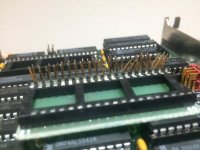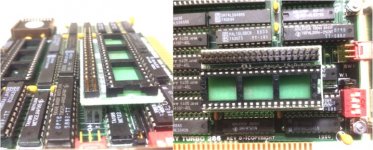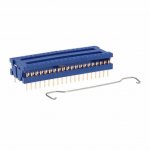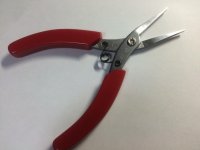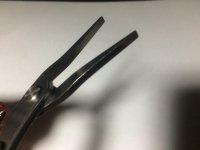I got a Orchid Tiny Turbo 286, dead cheap considering the prices these go by lately but with the 40 Pin connector pretty banged up. I have an Intel Inboard 386 and I always wanted to get the little Tiny 286 Orchid brother 
I use a couple of tweezers to straighten the pins up carefully applying pressure from the base of the pins. The worst part was that some of the the pins we also twisted around 5~10 degrees to their right (Rotated bend), these took me a significant amount of time to correct and I was lucky that the base did not crack because I had to use a little more force that I wanted.
Would be interested to know of other methods/tools to straighten up bent pins. Is there any special tool to do so, specially for rotated-twisted bents?
Before

After

I have to build a cable for the processor, the card came without one. Planning to buy one of these and hook it to IDE cable. If anyone has any experience doing so (Do's and Dont's), please feel free to share. I am sure these will surely come very handy.

I use a couple of tweezers to straighten the pins up carefully applying pressure from the base of the pins. The worst part was that some of the the pins we also twisted around 5~10 degrees to their right (Rotated bend), these took me a significant amount of time to correct and I was lucky that the base did not crack because I had to use a little more force that I wanted.
Would be interested to know of other methods/tools to straighten up bent pins. Is there any special tool to do so, specially for rotated-twisted bents?
Before
After
I have to build a cable for the processor, the card came without one. Planning to buy one of these and hook it to IDE cable. If anyone has any experience doing so (Do's and Dont's), please feel free to share. I am sure these will surely come very handy.

